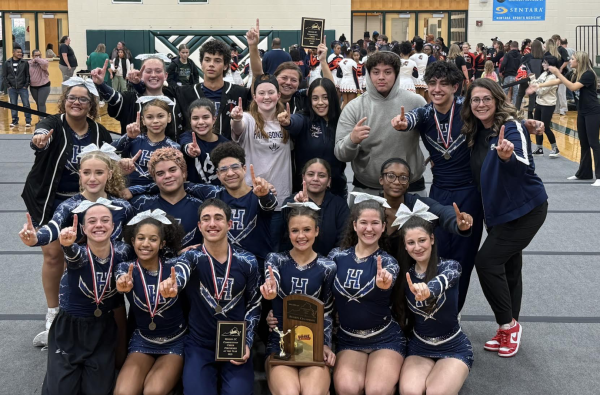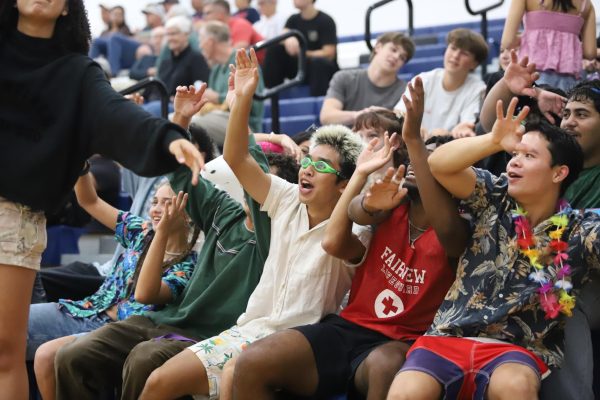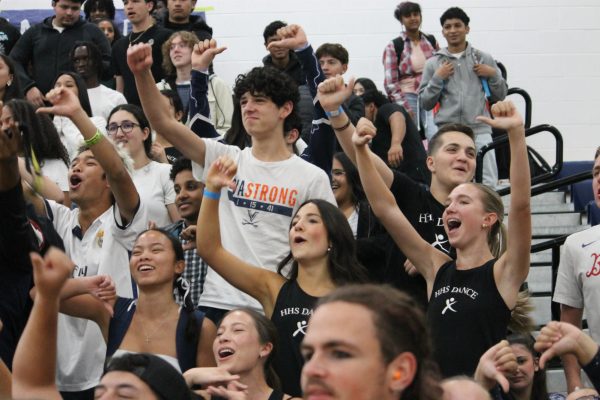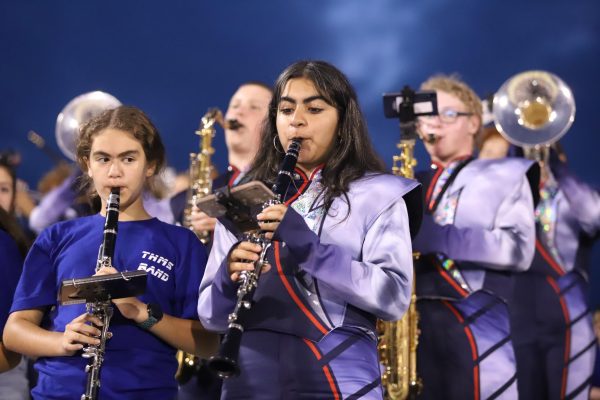Student project prevents early trauma in children of Harrisonburg
Seniors Anna Rath, Farah Raghab, Elisavet Savides and James Frakes gather in the auditorium commons for a group picture.
Through voluntary practices, special programs and classes, HHS is trying to give back to the community. One example of this is the Government Honors Service Learning class taught by social studies teacher James Hook. Working on their service project together, seniors Elisavet Savides and James Frakes have come up with the idea of helping students who have experienced first-hand trauma.
“[The project] is with the Harrisonburg Fire Department. It’s a program called Handle With Care,” Frakes said.
The project started in Charleston, West Virginia and has expanded to thirteen other states in the U.S. The system involves getting help for children that have been found on the site of a crime and moving them to a safer location: a nearby school.
“[The program] is essentially a bunch of organizations like the fire department and the police department educating schools about students who have gone through trauma in the past 24 hours,” Frakes said.
Frakes and Savides work alongside two other participants, seniors Farah Raghab and Anna Rath. Travis Karicofe is their contact with the Harrisonburg Fire Department. The group has come with a formal and simple system to provide aid to the children.
First, the incident is recorded.
“The form has three lines, and essentially what they have to collect is the child’s name, the date the incident occurred and find out what school [the child] goes to,” Savides said.
This form is then sent to the administrators of the school the child attends, notifying them of the child’s presence but not the event that took place.
“The adults at the school just know to handle with care. They have no idea what happened, they just know that the kid went through some sort of trauma,” Savides said.
Frakes and Savides’s ultimate goal is to help children that have undergone trauma as well as inform teachers of any child’s experience. Oftentimes, the trauma of a student can be unseen or unrecognized if one isn’t informed of the signs early on. Handle With Care plans to shine light on the trauma issue.
“A lot of kids… see something terrible happen, and then they just get thrown into school, and they fail all their classes because no one is prioritizing their mental health,” Savides said.
Frakes and Savides have considered training counselors as well, but that idea may go a little over budget. Handle With Care is meant to be a free system for the departments involved. However, they hope this program will reach volunteers that are willing to be a part of Handle With Care.
“[Having counselors] would definitely be beneficial, but the way that we’re doing it now costs absolutely no money, and if you want to get other people involved, you have to make sure that they’re willing to volunteer. [The volunteers] just have to be aware of what the program is and what it does,” Savides said.
This cost-free program has the possibility of being approved by the school board, in which case Harrisonburg City Public Schools would be the first school system in Virginia to adopt such aid.
“[Handle With Care] could honestly help every student within the Harrisonburg City Public Schools system at some point,” Savides said. “Everyone deserves for their mental health to be cared about.”
Your donation will support the student journalists of Harrisonburg High School. Your contribution will allow us to purchase equipment and cover our annual website hosting costs.













